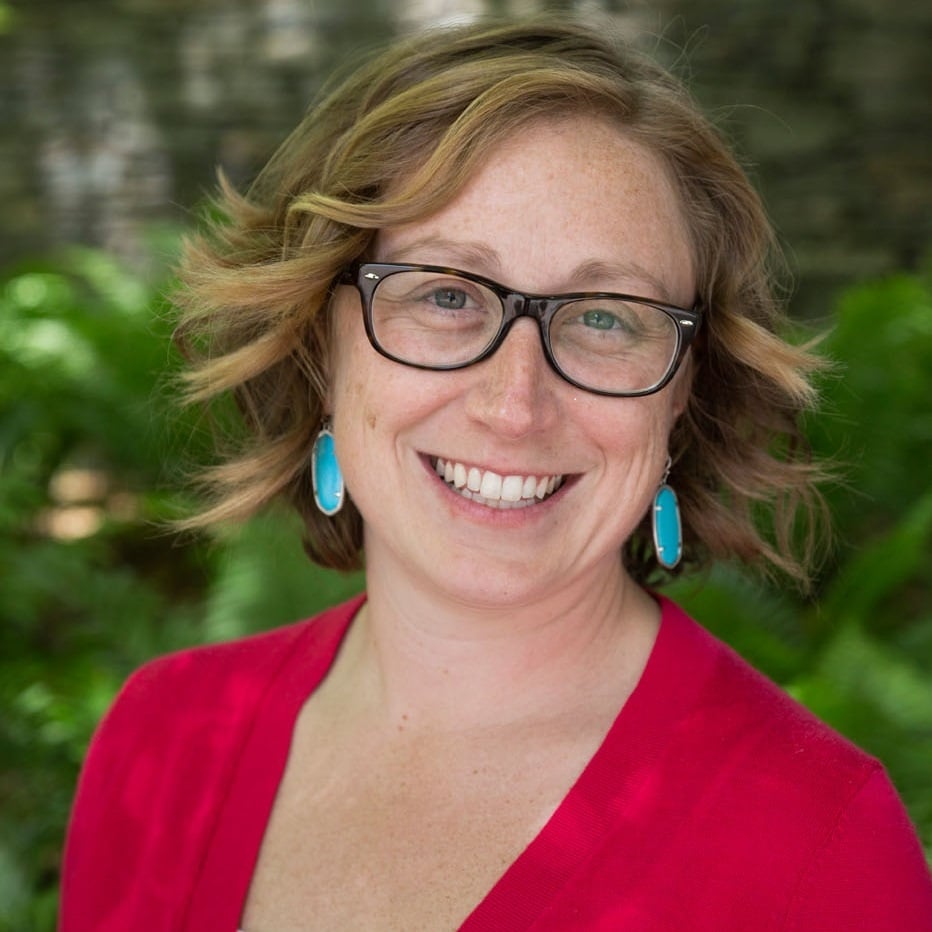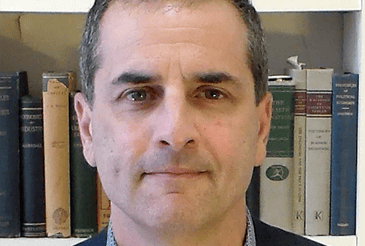How to Talk About Climate Change with Climate Deniers
.jpg?noresize)
We are in an era of unprecedented environmental challenges: severe weather events, rapidly warming oceans, a plastic pollution crisis, coral reef eradication, and the depletion of fresh water—to name a few. As if that weren't enough, the 2024 election is looming ever closer, and with it, we're seeing a resurgence in climate denialism.
But let’s raise the stakes even more.
Many of you will be traveling home for the holidays, which could mean anything from large family gatherings or intimate dinners and everything in between—all opportunities to see and interact with people who may not share your point of view. Whether you enjoy a spirited argument or avoid politics completely, you probably know that discussing climate change or global warming with climate deniers often feels like talking to a brick wall. After all, an opinion is hard to change, especially one firmly entrenched in skepticism. So, should you talk about climate change? Is there any merit in trying to convince climate change skeptics?
Here’s the thing—to make a dent in the current climate trajectory, we have to talk about climate change—a lot. We need to agree, at the very least, that climate change is real in order to create solutions (which we’ll inevitably argue about, as well). To foster some sort of understanding, climate champions need effective strategies that take into account the underlying factors contributing to denial and misinformation.
So, let’s explore how to talk about climate change in a way that can help you change minds—which is just one part of Bard’s three-part approach to sustainable development. By understanding motivations, debunking common myths, and employing effective communication techniques, we can foster dialogue and work toward a just transition to shared well-being on a healthy planet.
Why don't people believe in climate change?
First, we have to deal with the elephant in the room. It’s important to realize that there are vested interests in climate change denial because there’s profit to be made from denying the reality. Industries heavily reliant on fossil fuels like coal, oil, and gas have a financial stake in maintaining the status quo. They fund disinformation campaigns and political races while lobbying against climate regulations. These vested interests work to undermine public trust in climate science and hamper efforts to combat the climate crisis.
The economic motivations behind climate denial are why so much misinformation exists despite compelling scientific evidence to the contrary. To make things even more complicated, recent studies suggest that false news spreads faster than true or objective news.
In this case, these vested interests align with conservative ideologies, which tend to be less accepting of scientific findings on climate change and more supportive of industries tied to fossil fuels. Conservatism is also marked by skepticism towards government intervention and concerns about economic costs associated with climate policies. When it comes to climate change, there is an information deficit for many on the political right; conservatives may digest and share false information that represents their worldview—a phenomenon called confirmation bias (which all people fall subject to sometimes).
Apart from the misinformation and political biases, there are psychological reasons for the refusal to believe in or take action in response to climate science. Here are some examples:
- Cognitive bias in our evolved risk detection system: essentially, humans are more well-equipped to respond to immediate, visible threats, and "the lack of effective risk perception leads to behaviors that worsen climate change."
- Commons dilemmas and the bystander effect: commons dilemmas involve the conflict between individual and collective self-interest. Climate change is the ultimate commons dilemma because it requires true cooperation. Yet, the anxiety of the questions makes cooperation challenging: "How can I trust that you will do the right thing?" and "How can I trust that you trust that I will do the right thing?"
- Ecopsychology and disconnection from nature: this suggests that our modern lives are so disconnected from nature that we do not care enough to want to protect it. Not only that—but humans fail to realize that when the natural world is threatened, we are threatened, too.
- Fear itself: many people feel their livelihoods depend on industries charged with exacerbating climate change—the oil industry, for example. So, acknowledging climate change threatens their jobs.
Let's dig a little deeper and explore how so many people have come to not believe in climate change.
How climate change propaganda works
When it comes to climate change discourse, propaganda serves as a powerful tool for shaping public perception. By definition, propaganda refers to the deliberate dissemination of information or ideas with the intention of manipulating public opinion. We’ve broken out climate change propaganda into its most basic parts for a comprehensive analysis.
Manipulative messaging
Climate change propaganda begins with the manipulation of messages to frame information in a way that advances a particular agenda. Words, images, and narratives are carefully selected to evoke emotional responses, create a sense of urgency, and convey a specific viewpoint. Take a look at the ads below, paid for by oil companies. The framing from 2003-2006, in particular, is interesting, as it puts the responsibility on everyday people.
By framing climate change as a controversial topic or fostering doubt about scientific consensus, propagandists can sow confusion, undercut public trust, and promote skepticism.
Misrepresenting data
Propaganda often relies on selectively cherry-picked data or misrepresenting scientific findings to support a predetermined narrative. Propagandists can distract from broader trends and overwhelming scientific consensus by focusing on short-term fluctuations or isolated incidents.
Discrediting scientists to amplify doubt
A crucial aspect of climate change propaganda involves amplifying doubt and discrediting reputable scientists or institutions. This is achieved through questioning the integrity, motivations, or expertise of climate scientists, casting doubt on their findings, and promoting alternative views or fringe theories. By undermining the credibility of scientists and their research, propagandists seek to erode public trust in climate science and foster skepticism.
Leveraging ideological biases
Propaganda in the climate change realm frequently exploits existing ideological biases. The messaging is tailored to be polarizing, reinforcing division to make climate change a subject of political debate rather than a matter of scientific consensus that needs urgent action.
Effectively engaging with climate deniers requires us to understand why they have those beliefs and how they got them. But you’ll likely come face-to-face with climate change propaganda and the anti-climate arguments it spawns. If you want, explore some of the most common arguments against climate change before learning the tactics to have these types of conversations.
How to talk about climate change—6 tips
If climate champions want to get anywhere with these conversations, we must navigate them carefully. We cannot simply tell someone they're wrong and expect any sort of meaningful change or shifts in opinion. Try these tips when talking to climate deniers about climate change.
1. Frame climate change discussions in terms of shared values
Conversations around climate change can easily become charged with emotion. Do your best to avoid anger, defensiveness, and frustration by grounding your conversation in shared values from the very beginning. Employ active listening techniques to discover what truly matters to the person you’re speaking to and how their values resonate with your own.
Maybe they worry about protecting future generations. Perhaps they’re motivated by having a strong local community. You could dial into their interest in conservation, or if they’re an animal lover, bring that into the mix. By emphasizing those shared values from the outset, you can create a foundation of trust.
2. Connect the dots
For many in the United States, in particular, climate change feels very removed from our daily lives. It’s an intangible, looming threat. Use your conversation to emphasize the interconnectedness of climate change with everyday aspects of our well-being: health, economic stability, global security, and more.
What parts of their well-being are most important to them? If they have health issues, talk about how air pollution, exacerbated by larger, longer, and more frequent wildfires, can increase premature deaths, especially for those with asthma or any other respiratory or cardiovascular illnesses.
Are they in an area that sees fewer severe weather events? Flooding, the most common natural disaster, causes injuries and drownings while spreading waterborne diseases. (Floods often also result in the destruction of property, causing an economic burden on victims and their communities.)
Everyone drinks water. You can remind them that only 3% of the water on Earth is fresh (and safe for consumption). Severe water shortages will affect the entire planet as early as 2040.
If you’re unsure how to connect climate change to that person’s life, share personal experiences that illustrate how climate change has affected your life or the life of someone you know. Make the issue relatable; ground it in real-world examples. By doing so, we can foster empathy, inspire action, and create a sense of urgency.
3. Rally behind a common goal
Just as JFK's Moonshot united the nation, we need a shared vision that transcends political ideology and ignites collective action. Envision a future where the United States leads the globe in solving climate change. Where the environmental education programs and environmental policies of our country serve as the foundation for teachers and lawmakers across the world. Where capitalism boldly innovates a solution that changes the game and shapes a better world for us all.
4. Or rally against a common enemy
Who truly benefits from doing nothing in the face of climate change? To put it simply, it’s the companies and those at the top—in relentless pursuit of higher profits, regardless of the cost to our planet and everyone else. They are the only ones who have something to lose.
Money dictates everything in the United States. By reminding people of that and shedding light on the hidden, underlying forces at play, we can unite against a common enemy, driving systemic change and demanding accountability.
5. Share tips about misinformation
We might not be able to get rid of disinformation campaigns, but we can at least talk about strategies we use to discern the truth in media—from either side of the political aisle. Share your approach to fact-checking and finding multiple reputable sources. Break down what it means to think critically about a piece of media, from identifying the emotional response it's trying to elicit to analyzing it from multiple angles. Promoting media literacy, even in these small moments, can help create a more informed society.
6. Convincing is not the goal—the conversation is
Let's be real: it’s unlikely a conversation over the course of a holiday meal will change someone’s opinion on climate change. However, there’s inherent value in having civil, respectful, informed discussions, even in the face of climate denial. The goal is to create an environment marked by open-mindedness where the seeds of change we’ve planted may grow over time.
Changing minds is about more than just climate deniers
When we talk about changing minds, we are talking about the power to ignite collective action on a global scale. It starts with environmental education.
Environmental education fosters a deep understanding of our interconnectedness with the natural world. And sustainability education of this caliber has only become more important in recent years. The Master’s in Environmental Education at Bard is where environmental activists and forward-thinking educators come together to drive transformative change.
Through intensive academic training, real-world professional experience, and career development opportunities, graduates of the MEd program go on to pursue successful high-impact careers in private schools, NGOs, government land management agencies, private land conservation organizations, museums, environmental education centers, and consulting firms. They become advocates for change, poised to challenge the status quo and reshape the dialogue around climate change. Learn more about the Master’s in Environmental Education by downloading our guide.
In the field of environmental education and beyond, Bard’s Graduate Programs in Sustainability cultivate leaders who break through existing systems, innovating solutions to critical social, environmental, and economic challenges. We change minds through environmental education, but we also change the rules of environmental and climate policy and change the game through sustainable business.







